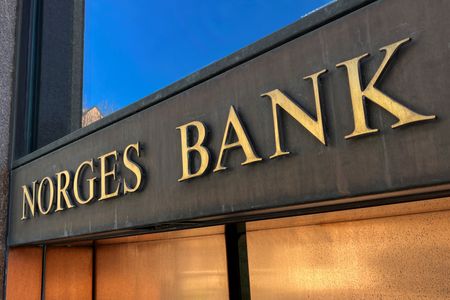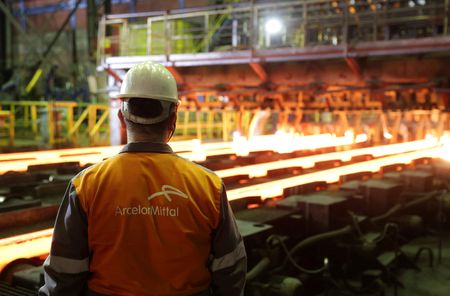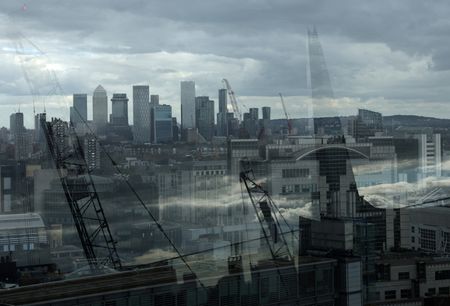By Maria Martinez
BERLIN (Reuters) -The German economy is expected to stagnate this year after two years of contraction, with tepid growth of 0.7% forecast in 2026, the German Chamber of Commerce (DIHK) said on Thursday.
Its projections were more pessimistic than those of the government, which foresees 0.2% this year and 1.3% next.
German Chancellor Friedrich Merz took office in May promising to revive growth in Europe’s largest economy, which has been struggling with high energy costs, weak global demand, environmental realignments, and growing competition from China.
However, the hoped-for turning point has failed to materialize and the economy continues to tread water, DIHK said.
“The situation did not improve over the summer months; on the contrary, sentiment has deteriorated slightly again,” said DIHK director general Helena Melnikov at the presentation of the forecasts in Berlin.
Only 15% of companies expect an improvement in the economic situation over the next twelve months, while one in four expects a deterioration, according to a DIHK survey of 23,000 firms.
“The government has identified the right issues, but has not yet developed the necessary punch,” Melnikov said.
INVESTMENT ON HOLD
Companies are increasingly cautious: only one in five plans to increase investment, while one in three intends to cut it.
“Five years after the start of the pandemic, corporate investment is still around 10% below pre-crisis levels,” Melnikov said. “Since 85% of annual investment in Germany comes from the private sector, that is an alarm signal.”
Employment prospects are also deteriorating: one in four companies plan to cut jobs while 11% aim to add staff. A record 56% rated labour costs as one of their biggest business risks.
“Rising social contributions and the recent increase in the minimum wage are having a noticeable impact, especially in labour‑intensive sectors such as hospitality,” Melnikov said.
Some 58% of the companies surveyed perceived weak domestic demand as a significant burden and 57% rated the economic policy environment as a business risk, the survey showed.
(Reporting by Maria Martinez; Editing by Andrew Cawthorne)










